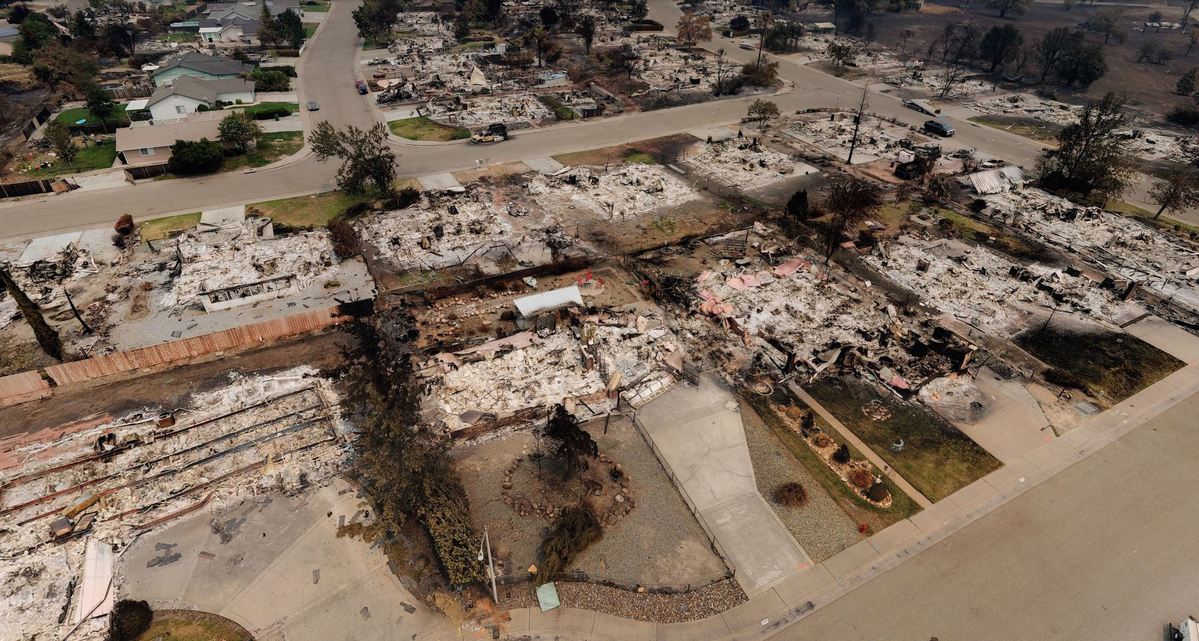Wildfire victims hit by tariffs
By Lia Zhu in San Francisco | China Daily | Updated: 2018-08-18 10:34

Wildfire victims in California are among those hit by the US government's new tariffs, as they are facing increased costs to rebuild their homes.
Last year, a series of wildfires burned across several counties in northern California. In Sonoma County alone, thousands of homes were destroyed. But increased costs and inadequate insurance left many homeowners struggling to rebuild their homes.
Early last month, the government imposed 20 percent extra tariffs on imported lumber and 25 percent on steel as well as other construction materials, which added to already rising costs.
"I had never expected a trade war would impact my home," said David Lin, a resident of Santa Rosa, Sonoma. "The builders told us the longer we wait, the more expensive it will be. We are very worried."
Since the fire destroyed his three-story house in October, Lin has talked with several building companies but hasn't signed any contract. He said his insurance covers only half of the cost, which is estimated at over $1 million.
"It's already more expensive than last year. Now with the trade dispute, it would only get worse," he said.
"It's impossible to rebuild the home we had."
As a result of the tariffs on $34 billion worth of imported goods from China, the cost of a fireplace goes up 10 percent, quartz and granite countertops rise 10 percent, garage doors 5 percent, and sheet metal products for heating systems are up 10 percent, said Ed Waller, CEO of the Windsor, California-based Shook and Waller Construction Inc.
He estimated the increased costs of those four products add $3,000 to $4,000 to the price of a new home.
Even thousands of dollars is big number to many homeowners who don't have sufficient insurance coverage, said Nancy Wang, whose two houses in the Coffey Park neighborhood of Santa Rosa were destroyed in the fire.
"Some neighbors have chosen to sell the lot and buy smaller houses somewhere else because they can't afford the rebuilding costs," she said.
Builders continue to monitor how tariffs and the trade dispute are affecting key building material prices, said NAHB Chief Economist Robert Dietz. "These cost increases, coupled with rising interest rates, are putting upward pressure on home prices and contributing to growing affordability challenges."
Aside from construction materials, appliances and solar panels also are subject to the proposed tariffs targeting $200 billion worth of Chinese products. This round of tariffs is expected to start early next month.
Waller estimated the lumber costs, new tariffs and labor have caused a 25 percent increase for an average single-family home, compared to early 2017. "If it (the tariffs) continues, it would just raise the price of the homes," he said.
























